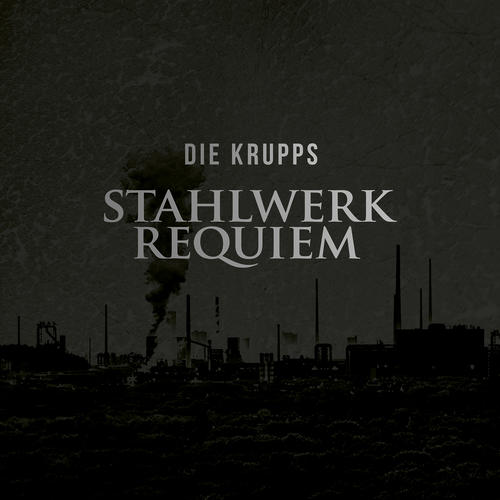Vidna Obmana & Serge Devadder – The Shape Of Solitude – Suite For Electric Guitar, Atmospheres And Recycling
Label: Multimood Format: CD
 Ah, how Swede…erm…suite it is… (Ouch – Ed.) Sound that often appears on the Hearts of Spa/gelbce broadcast (recently sacked from Los Angeles airwaves in favour of something called “Classical music”) manifests itself now. But what atmospheres do they mean? The sweatsoaked haze deceding carnal explosives? A dreamstated journey down a warm corridor of gold eaten by worms? A session of sexual exploration seen through eyes leaking ejaculate? That’s right, folks – more fuck music.
Ah, how Swede…erm…suite it is… (Ouch – Ed.) Sound that often appears on the Hearts of Spa/gelbce broadcast (recently sacked from Los Angeles airwaves in favour of something called “Classical music”) manifests itself now. But what atmospheres do they mean? The sweatsoaked haze deceding carnal explosives? A dreamstated journey down a warm corridor of gold eaten by worms? A session of sexual exploration seen through eyes leaking ejaculate? That’s right, folks – more fuck music.
The sound sparkles like sunset through abandoned mansion windows. Guitar bows and pigeon coos and where is the lowest level of fondness and longing and sorrow in a house? How deeply-steeped are the timbers in living time – in human time? What’s the true shape of solitude when there’s no one around the shape it?
These are the things you cannot tell your loved ones – encapsulated in these lows that shiver and shimmer – the tightness of the chest and stopping of the throat. A spiral of solitude that is absolute and unappreciated – and it takes so long to fade out…
-David Cotner-
Vidna Obmana + Willem Tanke – Variations For Organ, Keyboard And Processors
Label: Multimood Format: CD
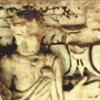 This music reminds me of a pretty doll. Handcrafted with great care, its beauty is undeniable, and the skill and patience involved in its making are completely self-evident. But what is its purpose? When would I play this music and what is its message? And does that matter, really, when dealing with such a lovely piece of art?
This music reminds me of a pretty doll. Handcrafted with great care, its beauty is undeniable, and the skill and patience involved in its making are completely self-evident. But what is its purpose? When would I play this music and what is its message? And does that matter, really, when dealing with such a lovely piece of art?
The composers’ questions seem to lie in a comparison of modern electronics, and Fritjof Capra‘s Tao Of Physics contrasted to pipe organs of old. What is much more obvious (at least to this listener) is a reference to ecclesiastical atmospheres: the cold stone church (in this album’s case, those in Berkel-Enschot and Maurik, The Netherlands) and warmed by smouldering prayer candles and the radiance of shame and guilt. Perhaps the comparisons of mysticism to science would be more blatant to someone not of my pseudo Christian upbringing. The pipe organ means church to me. And that is not a wholly bad thing. There is a certain comfort to those echoing pipe reveberations that interlude the priest’s busy work; human silence and musical reverence. And there is the slightest pinched nerve element of a drone implied to get lost to as well.
Pretty is as pretty does, and these carefully arranged and rearranged pieces, assembled in full-on Canon-method, play on amicably and enjoyable. And pretty is not so shallow at all, but assembled electronically with forethought from organs of historical value and noteworthiness. In fact, after reading the stories of the organs’ origins included in the sleevenotes, I am not sure that this collection is worthy enough. Still it must be said that I would have known less for not listening to it, and no doubt musicians will appreciate it all for the effort put into the making. Perhaps if I played it on Sunday mornings and felt really guilty while doing so, my mom would stop asking if I go to church?
-Lilly Novak-
Octavius – Modern Chairs/Speed Limit
Label: Just One Enterainment Format: 12″
 Once again, Octavius (AKA William Marshall) teams up with producer 4AM (AKA Jason Chavez) on “Modern Chairs”, here presented in three mixes of post-Industrial strength HipHop, sizzling with distension and bile directed at the shallowness of the post-modern culture. “In Which We Vent Mix” is the most straightforward, with Marshall’s intensely sincere lyrical delivery taking on the mantle of harsh cosmopolitan critique which Michael Franti left behind for the more Soulful territories of Spearhead. “Dance If You Must” throbs with rumbling basslines and shivers with scattershot electronic flashes and a clattery rhythm section. The vocals are set to a more breathless tempo, rushed out like Octavius is in a hurry to make sure the message gets through that constant shallowness leads the world astray. Lastly, the “Vocal” mix provides an acapella take on every breath and rhyme of the track, with the addition of some circular echo effects to bring a hint of otherness.
Once again, Octavius (AKA William Marshall) teams up with producer 4AM (AKA Jason Chavez) on “Modern Chairs”, here presented in three mixes of post-Industrial strength HipHop, sizzling with distension and bile directed at the shallowness of the post-modern culture. “In Which We Vent Mix” is the most straightforward, with Marshall’s intensely sincere lyrical delivery taking on the mantle of harsh cosmopolitan critique which Michael Franti left behind for the more Soulful territories of Spearhead. “Dance If You Must” throbs with rumbling basslines and shivers with scattershot electronic flashes and a clattery rhythm section. The vocals are set to a more breathless tempo, rushed out like Octavius is in a hurry to make sure the message gets through that constant shallowness leads the world astray. Lastly, the “Vocal” mix provides an acapella take on every breath and rhyme of the track, with the addition of some circular echo effects to bring a hint of otherness.
“Speed Limit” comes in two flavours – the “Drug Song? What Drug Song?” mix and “Minus The Senseless Chatter”. The former coasts on a crackly, slow motion bounce in Downtempo rhythm, contemplating the lack of a speed limit in Germany and other aspects of travel and mechanized, globalized, motion with a relaxed air of nodding consideration of the implications. Naturally enough, the other version is an instrumental, which seems cracklier and sleepier without the words. The final track on the EP is a reworking of The Sleepover Disaster‘s “China Dress” as “Sorry Wrong #”. A highly flanged and chorused guitar chime weaves through the steamhammer percussion chug while a squitter of effects plunders the melody and the female vocal torch-sings around the dress in question. As the mash up of delay and splutter begins to dominate, the resemblance is to a slow-burning ballad being shredded then blended into a whirlpool.
-Antron S. Meister-
Octavius 4AM – Electric Third Rail
Label: Just One Entertainment Format:CD
 First off, though Electric Third Rail is described as an EP, it’s about 38 minutes long – so you get plenty of extended play here. Octavius is known to some as William Marshall, 4AM as Jason Chavez, and the music lies somewhere at the interstices of Industrial and HipHop; to TripHop as post-Rock was to Rock perhaps. Like fellow noisy blighters Fever, their take on breakbeats and bass is dense, coiled and loaded with some bitter bile, though with a leavening of optimism shot through.
First off, though Electric Third Rail is described as an EP, it’s about 38 minutes long – so you get plenty of extended play here. Octavius is known to some as William Marshall, 4AM as Jason Chavez, and the music lies somewhere at the interstices of Industrial and HipHop; to TripHop as post-Rock was to Rock perhaps. Like fellow noisy blighters Fever, their take on breakbeats and bass is dense, coiled and loaded with some bitter bile, though with a leavening of optimism shot through.
Largely their targets are the PoMo media lanscape and corporate capitalism, the latter the world’s least favourite entity and public enemy number one except with the tender-hearted “law enforcement” folks in service of power who generally issue such edicts. However, on to the record… it’s a sometimes a dark beast and no mistake, shuttered by a mounting sense of urban dread built on the foundations of reguritative sprinkles of sampling detritus, real-world noise (they like to include the sound of trains passing the studio in the mix, and very effective it is too to hear a rumble break up the backround) and delay effects on the drums sounds – and pretty much everything else.
Guest contributions include the voice of Autumn Michaliszyn offering moans as well as words from time to time; the bass, Theremin and other interventions from ex-Meat Beat Manifesto man John Wilson, especially prominent on the thumping “Linear Excursion”; and some curlicues of mutiply-effected sampling from Taron Barefield among the flutes and Dub noise of “4:31”. The dynamic constructed is rarely singular; shifts make themselves apparent or not at various levels of the mix, sometimes creeping close to aural overload but more often holding off to all the more satisfyingly crackly, ominous effect.
Electric Third Rail is grim but not overly bleak; there is hope of effective resistance at work somewhere in the miasma. With booming beats offset against texture and ambience, the music engages in a dialectical process as much as the lyrical content hopes to. Their sincerity is evident, whether politically or musically, but the essential flow of the record isn’t unduly compromised by any self-satisfaction which could result; they may be didactic, but it’s a lesson at least worth the listen, and more than a few times at that.
-Freq1C-
O’Death – Broken Hymns, Limbs, and Skin
Label: City Slang (Europe)/ Ernest Jenning Record Co (USA) Format: CD
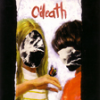 O‘Death’s stated intention with Broken Hymns, Limbs and Skin was to capture the energy of their live sets on record, and anyone who has seen one of O’Death’s riotous shows will know that this is a hell of a tall order. The resulting album is a gypsy stomp barn burner, a chaotic celebratory oom-pah punk sea shanty set to wailing fiddles and crashing shards of scrap metal, an emotional hoe-down encompassing howling angst and Jesus-jumping ecstasy and whisky swagger. As for freezing an O’Death show and printing it on three and a half inches of plastic, this is about as close as you’re going to get.
O‘Death’s stated intention with Broken Hymns, Limbs and Skin was to capture the energy of their live sets on record, and anyone who has seen one of O’Death’s riotous shows will know that this is a hell of a tall order. The resulting album is a gypsy stomp barn burner, a chaotic celebratory oom-pah punk sea shanty set to wailing fiddles and crashing shards of scrap metal, an emotional hoe-down encompassing howling angst and Jesus-jumping ecstasy and whisky swagger. As for freezing an O’Death show and printing it on three and a half inches of plastic, this is about as close as you’re going to get.
Granted, at the moment we’re not exactly short of artists who earn their crust exploring the dark underbelly of Appalachia. In fact, I’m beginning to wonder if Appalachia is anything but dark underbelly. But Broken Hymns puts O’Death up there with the best of their field. On the more contemplative numbers, Greg Jamie’s vocals have a fragile wisdom reminiscent of Neil Young or Will Oldham; however it’s when the band ratchets its trademark fervour up to snake-handling levels, and he’s howling hooks like a horsewhipped demon, that’s when O’Death really come into their own. Not so much toe-tapping catchy as foot-stomping epidemic, this is an album you could lock yourself away with all winter, provided you had a few buckets of bourbon and a fiddle.
-Anton Allen-
O’Death – Head Home
Label: City Slang (Europe)/ Ernest Jenning Record Co (USA) Format: CD
 Head Home is a record which works its way into the subconscious, and O’Death are one of those bands who become such a fixture on the scene in a relatively short time that they are now a yardstick against which to measure similar bands. Country music – in its widest sense – has come a long way this century to recovering all the ground lost to rhinestones and Republicans in the Nineteen-eighties. Buegrass has certainly changed a bit, with groups like this playing their infectious take on the genre not so much like Country Gentlemen as front-porch punks – from New York, of course. Unlike, say, the Bad Livers, who whip up twisted banjo versions of Motörhead or Iggy Pop (as well as producing their own original material and covers of old-time classics), O’Death prefer to ramp up the tempo and take the music of the mountains into turbocharged realms not a million miles distant from the more traditional territory being gleeful mapped out by the massed ranks of The Hackensaw Boys or the deranged intensity of Old Time Relijun without straying to far from its roots either.
Head Home is a record which works its way into the subconscious, and O’Death are one of those bands who become such a fixture on the scene in a relatively short time that they are now a yardstick against which to measure similar bands. Country music – in its widest sense – has come a long way this century to recovering all the ground lost to rhinestones and Republicans in the Nineteen-eighties. Buegrass has certainly changed a bit, with groups like this playing their infectious take on the genre not so much like Country Gentlemen as front-porch punks – from New York, of course. Unlike, say, the Bad Livers, who whip up twisted banjo versions of Motörhead or Iggy Pop (as well as producing their own original material and covers of old-time classics), O’Death prefer to ramp up the tempo and take the music of the mountains into turbocharged realms not a million miles distant from the more traditional territory being gleeful mapped out by the massed ranks of The Hackensaw Boys or the deranged intensity of Old Time Relijun without straying to far from its roots either.
So they do songs about Jesus, mortality, drinking old booze, self-induced lonliness, ripped-up dresses, murder ballads and rickety fence teeth, and they perform them with so much verve and enthusiastic energy that it’s easy to get caught up inthe lurching swing. There are harmonised choruses of course, but they’re either belted out like O’Death are lusty pirates on shoreleave or mourners at a gospel funeral, while Greg Jamie‘s vocals sweep the ground before them, straining with a heartfelt high octave power. Gabe Darling does a fine job on the banjo, picking and strumming the melodies, and when the band goes wild, as they often do, he provides a solid line of tunekeeping. The fiddle playing of Bob Pycior provides scraping drones, shivering runs and choppy strokes, whirling into the backbrain with an insistent intensity matched by David Rogers-Berry‘s clattery post-agricultural percussion on gas cans and repurposed cutlery.
There is a sense of boundless energy being unleashed on this album, which makes Head Home such an enjoyable listen. The production sounds present and live, like the band are whipping up a frenzy onstage with a barnstormers like “O Lee O” or “All The World”, the soaring minor key whirl of “Only Daughter”, singing out their melancholy in the back room on “Travellin’ Man” or the twangy slow stomp of “Jesus Look Down”. Pretty much essential listening for the discerning fan of Americana, the only possible improvement would be seeing O’Death perform these songs live.
-Richard Fontenoy-
Raz Ohara – The Last Legend
Label: Kitty-Yo Format: CD,LP
 Some of this sounds like it wasn’t quite finished but that could be the intention. I thought of some of Jeff Buckley‘s incomplete sessions. But this guy didn’t go swimming with his boots on. This is the scenario : take one reasonably soulful, throaty voice and keep the musical accompaniment as basic as possible. He uses acoustic guitar with just a few overdubs and samples to flesh things out, like the processed guitar or keyboard on “Liberian Girl”, a track which also has some crystalline electric piano. This sparseness creates an intimacy which, for me, is the appeal of the CD. Raz Ohara‘s voice isn’t always that strong, sometimes it’s nearer a hoarse whisper, and this fragility is perhaps what caused the writer of the press release to make a slightly misleading comparison with Nick Drake. Finley Quaye may be closer.
Some of this sounds like it wasn’t quite finished but that could be the intention. I thought of some of Jeff Buckley‘s incomplete sessions. But this guy didn’t go swimming with his boots on. This is the scenario : take one reasonably soulful, throaty voice and keep the musical accompaniment as basic as possible. He uses acoustic guitar with just a few overdubs and samples to flesh things out, like the processed guitar or keyboard on “Liberian Girl”, a track which also has some crystalline electric piano. This sparseness creates an intimacy which, for me, is the appeal of the CD. Raz Ohara‘s voice isn’t always that strong, sometimes it’s nearer a hoarse whisper, and this fragility is perhaps what caused the writer of the press release to make a slightly misleading comparison with Nick Drake. Finley Quaye may be closer.
Some of the lyrics don’t stand up to close listening, as on “Cartoon Character”, which reinforced my feeling that a number of these songs needed further work. In fact there are very few really memorable tunes: the Bluesy “Far’s Sang”, with its warm reverb guitar, is perhaps the most, along with “Liberian Girl”. That said, it’s an album to put on maybe late into the night or some other time you feel like hearing a few uncomplicated, if slightly ragged, songs which won’t make many demands on you.
-Paul Donnelly-
Raz Ohara – Realtime Voyeur
Label: Kitty-Yo Format: CD
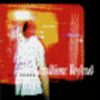 Imagine, if you will, just for a moment, that Prince‘s records were as good as he obviously seems to think they are, and that he could use his (undoubted, though in my opinion, completely fucking squandered) talent to make something good rather than merely self-important. What a strange world we’d be living in. You can kind of approximate this by listening to Raz Ohara‘s debut Realtime Voyeur, where slick Soul slides (nice sibilance, huh? A bit like the record) across varying Dub, Trip-Hop or Drum’n’Bass backgrounds without once slipping into the territory of wankiness – for want of a better word.
Imagine, if you will, just for a moment, that Prince‘s records were as good as he obviously seems to think they are, and that he could use his (undoubted, though in my opinion, completely fucking squandered) talent to make something good rather than merely self-important. What a strange world we’d be living in. You can kind of approximate this by listening to Raz Ohara‘s debut Realtime Voyeur, where slick Soul slides (nice sibilance, huh? A bit like the record) across varying Dub, Trip-Hop or Drum’n’Bass backgrounds without once slipping into the territory of wankiness – for want of a better word.
Lots of nicely-flanged keyboard tones mingle with FX-heavy hints of guitar, with treated vocals poured on over the top like that mental stuff you used to be able to get to pour on ice-cream that went all cool when it hit the stuff. Never anything but mellow, but without descending into the up-it’s-own-arse-misconception-of-Jazz-shitness that a lot of this lind of thing (TripHop, “Intelligent” Drum & Bass) has a tendency to encompass. Realtime Voyeur even contains – for want of a better phrase – a novelty track; a cover of the Pixies seminal “Where Is My Mind”, where the fluid (geddit?) guitar discordances of the of the original are replaced by a Wilmot-esque carnival of trumpets and upbeat vocals, turning it into something completely different and much nicer and Reggaefied. Whether you think this is a good thing or not is a matter for debate, but I urge you to at leats listen and check it out ‘cos it’s fab. For once, a mixed-assortment of an album where all the centres are pretty damn tasty.
-Deuteronemu 90210, friend of Jim Rockford-
Ohm – O2
Label: Timothy’s Brain Format: LP

Lovingly packaged in a hand-produced sleeve featuring a rather concerned-looking, even tripped-out pig (of the porcine, rather than the law officer variety), O2 sets its paramaters firmly in the vicinity of the lysergicly electronic, with dashes of enviromental sound and psychedelique concrète. The group of Texans responsible, Nathan Brown, Doug Ferguson, Chris Forrest and S. Forrest Ward, plus guest vocals, flute and strings from Rena Jones, bring forth a slowly-coruscating series of untitled pieces which delicately work on the tonal characteristics of their massed array of vintage synths, reeds and percussion.
The dynamic shifts on display vary from the gently cyclic to the comprehensively intense, as the drumkit scarpers from speaker to speaker over the meandering analogues, and early on, Jones’ vocals take on some of the paranoiac, heavily effected abstract qualities found on Brainticket‘s seminal Cottonwoodhill album. It’s at this point that the more drastic headfucks really kick in – and auditor beware, especially those on a Space Cadet course, as the ride beckomes progressively more bumpy.
This is the kind of record that has become a wayward, almost lost, cause – far, far too drug-soaked for widespread acceptability, but deleriously rhapsodic in a very nauseous manner, and one that has become less familiar as psychedelic music has become more smoothly processed through sequencers and samplers over the last decade or so. Out there is about the best term for it – washes of synthesiser feedback brushing up against stirringly spacey chords and clarinet passages for pastoral moments of the Third Kind, bass burbles and clatters of miscellaneous hardware, or the ever-faithful chug of an long-remaindered drum machine. If this makes 02 sound retro, then maybe it is, but not in a way that has been marketed to death yet; perhaps a better description would be hallucinatorily timeless – dirtily cosmic music from the spaces out of the usual Einsteinian universe. Stupefaction and disorientation guaranteed.
-Antron S. Meister-
Ohm – Voices
Label: Two Ohm Hop Format: CD
 More Psychedelic free improvisation and compositional interpretation from the Texas quartet who operated their mind-blowing techniques so assiduously on their 02 LP, and who return with developments of their analogue machinations on Voices. Once again, Ohm operate in a semi-shambolic structure where Nathan Brown and S. Forest Ward‘s shuffling drums and regurgitative percussion hold down the basic format of most pieces while Doug Feruson‘s synths (and especially the Mellotron) make drones and soars of electronics warp from low to high and Chris Forrest provides the abstracted interjections on various clarinets. All manner of honking and parping ensues, as each track becomes a behemoth of signature scrawls of oscillators and tape loops up against the many and various varieties of richly-dissonant playing of seriously whacked design.
More Psychedelic free improvisation and compositional interpretation from the Texas quartet who operated their mind-blowing techniques so assiduously on their 02 LP, and who return with developments of their analogue machinations on Voices. Once again, Ohm operate in a semi-shambolic structure where Nathan Brown and S. Forest Ward‘s shuffling drums and regurgitative percussion hold down the basic format of most pieces while Doug Feruson‘s synths (and especially the Mellotron) make drones and soars of electronics warp from low to high and Chris Forrest provides the abstracted interjections on various clarinets. All manner of honking and parping ensues, as each track becomes a behemoth of signature scrawls of oscillators and tape loops up against the many and various varieties of richly-dissonant playing of seriously whacked design.
The apparent chaos of a track like the opener “In A Desert-Alambic/Clash Of The Titans” contrasts nicely with the swooning subtleies of the following “Tension, No Release”, where restraint is excercised in the manner prescribed by its title in ominously-formed textures of little resolution and much variance. This album is one for welcome surprises and some moments of particular frissons, particularly when a massive synth bass sound will drop right to the bottom end with little warning and much vibration (this is a group who love to mess with the levels just when least expected). Passages like the storming banshee craziness of “Salt’n’Pepper Cake/Fortress Of Ultimate Darkness” are where the most damage occurs to conventional rhythmic structure, whether noisy or slimmed down into lulling calms before the almost weather-system proportions ensues. Somewhere in the realms of Gong at their serious times and the Jazzier outlettings of Amon Düül II, the Psychedelic Prog part of Ohm makes an interesting partner to their Modernist soundtracking proclivities as much as their scrambled Improv snortings and even Faustian chug.
Their ear for the swung timbre and the many-limbed drum pattern makes for some fairly groovesome passages too, though never straying far from the exploration of a pitchbend, sudden bleep tone or shrill stab in extremis for too long – or more often at the same time. With progress at the forefront of each piece, as it warps from initial idea to developed shimmer and back out into reined-in noise-ride or pulsing groove, Voices sometimes has the power to thrill and the ability to raise itself into a really big sound at just the right moments.
-Antron S. Meister-
Matti Oiling – Cyclops Dance
Label: Jazz Puu/Sähkö Recordings Format: LP
Finnish Jazz came to me through Edward Vesala‘s recordings in the 70s. I still listen to and love Nan Madol and Satu, those wild, cold trawlings through landscapes rooted in perpetual twilight. But Matti Oiling and his cohorts took a different slant on Finnish Jazz or Jazz/Funk. Imagine this : an immaculately customised Ford Capri screeches to a halt at a Helsinki kerbside. A powerfully built torso emerges, jaw first. It’s Baron, the cop who likes to do things his way. The opening credits show him masterfully disposing of hapless hoodlums before taking his lady out for an evening of candlelight and herring. All in a day’s work.
That’s the impression I got listening to “Baron’s Beat”, the opening track on this mini album of tracks from 1970 to 1977. Oiling’s drums drive the sax and organ riffs while fender bass and guitar add extra rhythm to the proceedings. Organ and guitar solos are nothing earth-shattering in their Jazz/Funk way but, yes, it would make a great soundtrack. A much more percussive “Oiling Boiling” follows and includes a weird, almost incomprehensible voice among the choppy riffs and rhythms. Side 1 ends with another Jazz/Funk workout featuring saxes from Paroni Paakkunainen. The drums are everywhere too.
Side 2 consists of two versions of the album’s title track. One is from 1977 and has a rather mechanical early Techno feel with little electronic noises, presumably from the synth. It doesn’t have the straightahead energy of the 1970 tracks. The second version is a remix by Pepe Deluxe and is much the same but with more electronic noodles, some heavy percussion and a slowed down voice that may well be that of a fairly pissed-off Cyclops. It is apparently a floor-filler in Finland’s clubs. Listen and see if you can imagine what sort of dancing it would inspire.
-Paul Donnelly-
O.Lamm – Snow Party
Label: Active Suspension Format: CD,LP
After a while I begin to feel a certain irritation at the sterility of some electronica. It’s just so much shredded meat leaving me with the sensation of constantly switching radio stations in an attempt to locate something to listen to. It is full of fidgeting and desiccation. If you can imagine Zappa’s compositions for synclavier speeded up, chopped and re-arranged you might be near to what this sounds like. But no, that’s not quite it. I’m tempted to say the title of the second track sums it up; “I was a joker now I’m just a prick” but that’s too easy.
It’s a busy bag of noises, voices and at times has a few interesting flashes rising out of the rather dry, brittle segments of sound. The press notes say : “Olivier ransacks the semantic and memorial content of micro-fragments to converse with the emotional stake of their assemblage”. That really says it all.
-Paul Donnelly-
Old Time Relijun – La Sirena De Pecera
Label: K Format: CDS,12″
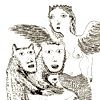 Now here are twenty five minutes of music worth saying a big goddamn over. In the old time style of hick comedy not unsimilar to The Cramps or Circle Jerks, with a completely rod-twisting sinisterism of The Birthday Party, Old Time Relijun have captured a most titilating sound of backwood angst and fury. No sloppy copying or tributing, OTR is probably the most original sounding bit of work heard since the genre of horror movie style swamp music was culled into Rock-N-Roll. Slap your knee and grab your sister, ready yourself for a musical trip to an uglier world of marshy secret snake handling and speaking in tongues.
Now here are twenty five minutes of music worth saying a big goddamn over. In the old time style of hick comedy not unsimilar to The Cramps or Circle Jerks, with a completely rod-twisting sinisterism of The Birthday Party, Old Time Relijun have captured a most titilating sound of backwood angst and fury. No sloppy copying or tributing, OTR is probably the most original sounding bit of work heard since the genre of horror movie style swamp music was culled into Rock-N-Roll. Slap your knee and grab your sister, ready yourself for a musical trip to an uglier world of marshy secret snake handling and speaking in tongues.
And speaking of tongue ties, Old Time Relijun has modified three of their tracks, originally released on Uterus And Fire in1999. The songs are reworked into Spanish, Italian and Portuguese, ostensibly to celebrate their trek into Europe, but perhaps because these languages of “love” translate well the emotions of passionate hate and disgust and degredation that are themelike on La Sirena de Pecera This world ain’t no pretty place, and this comes off in any language unmistakable, clear and to the point.
Rhythm, bass and striptease percussion fall apart into Jazz on crank and vocals from somewhere else. Everything is out of tune and twisted and perfectly wrong. Arrington de Dionyso‘s voice is…is… well, it is showcased perhaps best on “Moon”. I think he spits. Somewhere there is a descriptive medium-um…squeaky hinges, Gibby Haynes, demons from Hell? Maybe? He tries a little acapella on “Caught at the Door”. Mr.Cave might call up soon. And as if Arrington’s voice and that lethal rhythm aren’t enough to send you off your rails, he also lends breath to some of them most merciless wind I’ve ever heard.(meaning the bass clarinet…) Aaron Hartman with upright bass and Phil Elvrum doing percussion are more than great accompaniment it must be said. My advice: Lock up your kittens.
Lucky Euro readers will be able to go and see for themselves as OTR tour the continent this Spring, with the second week of April 2000 devoted thto the UK. Musically incestuous and evangelical, and something of the Devil, Relijun may just reform the Union Jack. Knowing now what they sound like, it will be most gratuitously frightening to see what they look like. I wonder if they’ll bring their own cousins…?
-Lilly Novak-
Olive Grain – Olive Grain
Label: Ace Fu Format: CD
 An extended string into guitar drone and echo as a female voice walks alongside it, picking it up as it falls down into the addictive bliss that is the Delay Pedal. Burning with a lighthouse flame, it moves off into the distance and it is unclear whether the sound will sweep this way very soon again. Next: a lilting little girl talks about her birthday and this is the sound of a record album of memories – gone over and over again, backward and forward – reflecting on unhappier times but necessary all the same. Bell and horn complete the séance.
An extended string into guitar drone and echo as a female voice walks alongside it, picking it up as it falls down into the addictive bliss that is the Delay Pedal. Burning with a lighthouse flame, it moves off into the distance and it is unclear whether the sound will sweep this way very soon again. Next: a lilting little girl talks about her birthday and this is the sound of a record album of memories – gone over and over again, backward and forward – reflecting on unhappier times but necessary all the same. Bell and horn complete the séance.
“Vowels” – almost Tuvan in its full-throated man vs. woman understatements. More woman-moaning and slow plucking of the guitar besides. Very pastoral Sunday morning makin-the-waffles kind of music. It’s all very simple stuff, very quiet and wallflowery, even as its shadow precedes it and one wonders where it came from in the first place.
Moody and brooding, slowly and low. A world-weary “And so on” infests the sounds but remember this, you fringe Rockers: for all the depth of gloom or heighths of sunlit wonder in your work, somewhere, someplace, you have made a laser beam illuminate your thoughts, your songs, for hours on end. Can you fucking believe it? Well, you should.
-David Cotner-
The Omega Men – After Dark/Virus
Label: Krush Grooves Format: 12″
Bringing yet more Drum & Bass from Germany, Groove Attack’s new subsidiary provides an outlet for the pseudonymous Omega Men, who bring Charlton Heston to the breakbeat. Perhaps not as post-Apocalyptic as their inspiration would suggest (solar-powered decks anyone?), there’s an edgy atmosphere running among the mechanistic two-step beats and the squelching bass of “After Dark” which the NRA’s most famous proponent would doubtless use a reason for arming more folks in time for the Millenium. “Virus” is a more energetic affair; picture our Chuck dodging the flaming brands and hideous countenances of the mutant hordes, each slug of bass wasting another hideous fiend, while simultaneously challenging the dancefloor participants in Armageddon into ever more grotesque contortions. Long live the new flesh.
-Freq1C-
Opeth – Blackwater Park
Label: Music for Nations Format: CD
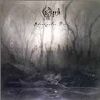 Here we have the new Opeth disc, named after an ultra-obscure Seventiess German Space-Rock band. Beauty, carnage, love, angst, it’s all here in entwined in a most amazing way.
Here we have the new Opeth disc, named after an ultra-obscure Seventiess German Space-Rock band. Beauty, carnage, love, angst, it’s all here in entwined in a most amazing way.
Let us take the first masterpiece on this album, “Bleak”. It starts out with brutal midpaced riff that is so good it hurts, while in the background you have spacey treated guitars that add a surreal atmopshere to the proceedings. Then comes the vocal, intense poetry being roared by what seems to be a Balrog. And so it goes. Until the guitars start soaring upwards and get brighter, before you know it you have angelic harmonies being sung by Mikael Akerfeldt (the singer/growler in Opeth). The guitars are chugging away but complementing the vocals wonderfully, vocal harmonies that would make Brian Wilson blush… Then comes the finale, a total mind-melt, sort of like Wagner meets Napalm Death in 87′. Have Mercy!
This is just one song of this marvel, it’s 10 minutes long but so are most of the songs on Blackwater Park. And they are all great. There are some standout tracks like the aforementioned “Bleak” and the title track, but it would be criminal if all the songs were that good.
Some Adjectives: Epic, extreme, jaw-droopin’, tender, brutal, beautiful…………..
-Dag Luterek-
Oral Constitution – Bibelpreik
Label: Artware Format:
 The voice of the woman harbours like a wall in the background as the voice of the man overloads the microphone and their dance is underpinned by the melodies of the times. Guitar and Gustav Doré‘s woodcuts linger in the background and which circle of friends is this? Occasionally, in experimental music, there are these communal dynamics (cf. Faust, Current 93, Baader-Meinhof, Scratch Orchestra) that exist for a time and are spoken of fleetingly yet with great reverence ever after. Oral Constitution seem, from these meagre documents, to be such a memory.
The voice of the woman harbours like a wall in the background as the voice of the man overloads the microphone and their dance is underpinned by the melodies of the times. Guitar and Gustav Doré‘s woodcuts linger in the background and which circle of friends is this? Occasionally, in experimental music, there are these communal dynamics (cf. Faust, Current 93, Baader-Meinhof, Scratch Orchestra) that exist for a time and are spoken of fleetingly yet with great reverence ever after. Oral Constitution seem, from these meagre documents, to be such a memory.
Rick Rubin says folk music is the new Punk Rock, but Mr. Rubin isn’t signing Oral Constitution, so pfui! on him. There is a sense of separation, of “going away”, in the strains and echoes of these pieces. The drumming marches out from the forest and phases in and out of this existence, along with the occasional speech squeak and creak. Much echoing, on to the unexpected yet inevitable end…
-David Cotner-
Jim O’Rourke – I’m Happy And I’m Singing And A 1, 2, 3, 4
Label: Mego Format: CD
I have to admit that I don’t “get” the whole Jim O’Rourke thang – it’s not that he’s lame and it’s not that I’m dismissing him out of hand. No, I don’t “get” him the way I don’t “get” Sonic Youth, Stereolab (exception: “Unkommuniti”), Black Flag, John Williams, Nick Cave, Led Zeppelin, Kid606, or any of that good stuff. I figure that I’ll get to it when I’m stuck in a sanatorium or something – when I have a lot of time on my hands. So now I have his latest CD in front of me, graced with the usual fine Tina Frank / Mego graphic de-sign, and it begins with a series of rapidly rising and falling and repeating repeating repeating repeating tones. The ghost of an accordion suffuses the ranks. Ironically, there are only three tracks on …1, 2, 3, 4.
Yes, the sounds do communicate a kind of happiness, uptempo and faintly grainy – like finding an old photograph of someone once loved and with whom much contentment was shared. The ecstatic static winds down to a gentle crackle, and the perhaps perspex of a guitar. And suddenly it shimmers from the giddy weirdness of the earlier sounds into a smooth and moving slow raising of spirits from whatever place Mr. O’Rourke from which gets his happiness. An exquisite and gorgeous piece.
I guess I don’t “get” Jim O’Rourke.
-David Cotner-
Orphic – Tranzient Phaze
Label: Pagoda Format: 12″
One for fans of Digital Dub, “Tranzient Phaze” blends breakbeats with crash and boom rhythms for starters, then crunches them up for good measure with a leavening of wistful bleeps to keep the calmer elements to hand in case the shattered drum hits cause undue offence. This track is really quite the smoker’s delight, provided of course they like their hash cut with crack for an edgy, paranoid high. Likewise with the “Tranzient Drums” mix, which just makes it all even more recursively percussive, and slips the odd clanging strike into the revved-up breaks to curiously Samba-eque effect..
“Autanmide” posits bleep and swirly keyboard manoeuvrings among squidgy bass and propulsive Electro rhythms in above-averagely boomtastic style, managing a severe grace among the slightly over-elegant fretless-style phrases. “Komatsu” develops the distorted Electro into blendered breakbeats, part squeaky rhythm, part handclap-slapback scuzz and phasing sweeps of aural scum, taking that dirtied-up Latinate route deeper into hypnagogic zones of self-suspending timelessness. As in lacking time, rather than being a classic, that is, which remains very much to be seen.
-Freq1C-
Osymyso – WelcomeTo The Pailindrome
Label: Sprawl Imprint Format: CD
 It had to happen sooner or later, everyones doing hip hop these days, even the Pope’s wound up laying down a groove or two for God’s sake. Soul Rock’n’Roll comin like a rhino? I think not, but that’s beside the point. It was only a matter of time before Carol Vorderman sat side by side with Prokofiev in a sampladelic TripHop collage. If you think about it, it’s inevitable. And Mark Nicholson AKA Osymyso, pulls it off in just the right way with tongue firmly in cheek.
It had to happen sooner or later, everyones doing hip hop these days, even the Pope’s wound up laying down a groove or two for God’s sake. Soul Rock’n’Roll comin like a rhino? I think not, but that’s beside the point. It was only a matter of time before Carol Vorderman sat side by side with Prokofiev in a sampladelic TripHop collage. If you think about it, it’s inevitable. And Mark Nicholson AKA Osymyso, pulls it off in just the right way with tongue firmly in cheek.
One of the things I love about this CD is the new slant on personal revelations Mark Nicholson gives us. Musicians are constantly telling us how bad, rad, mad, or sad they are. Quite frankly, its boring. Heard it all before. What Mark Nicholson gives us, on the other hand, is a deeply personal and intimate portrait of his televisual habits. It’s a real first. How many episodes of Countdown must he have sampled to get a smooth run of Carol Vorderman picking out O S Y M Y S O?
Then theres “A Dog! A Panic In A Pagoda” – Bomb Dog Chaos! Lovingly scooped from surreally satirical news scam The Day Today, this track tells us of the very real threat posed by bomb dogs. Never fear, Chris Morris offers hope: spray the bomb dog with a resin coating which hardens immediately. The inside of the bomb dog is destroyed, but the outside remains the same. However, if the underside is not coated a highly directional blast will launch the animal vertically to a height of over 1000 metres.
Yes, this is the flavour of Osymyso – off the wall and funny in the silliest ways imaginable. This kind of HipHop could be the cause of many spontaneous outbreaks of laughter. Great CD, just don’t try listening to it on the way to the Job Centre. And remember – “My Dog’s Better Than Your Dog”.
-Norris Notepad-
